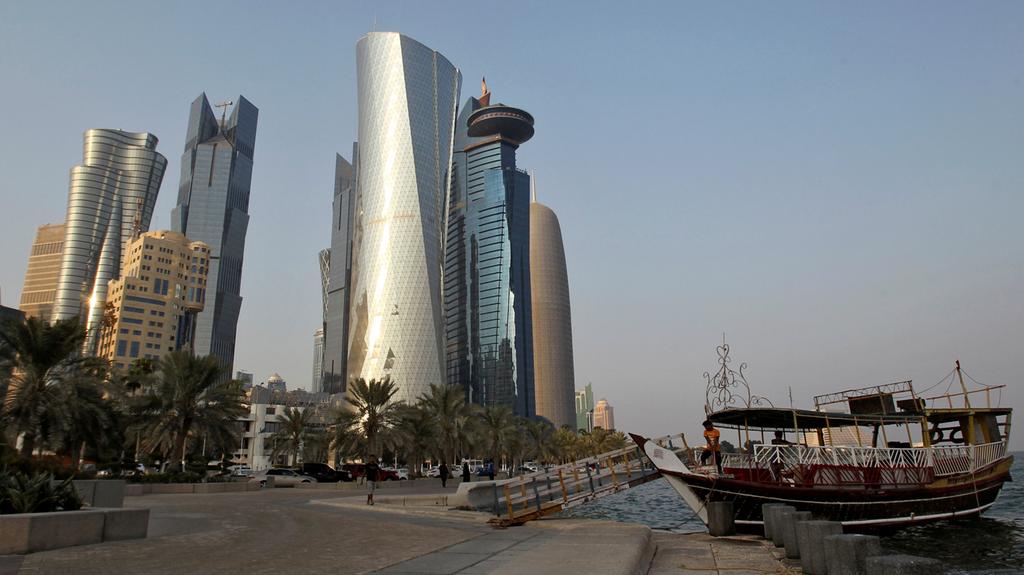Saudi Arabia revealed the involvement of a cell of five Saudis who are spying for Iran and their formation of a terrorist cell in the Kingdom aimed at carrying out terrorist attacks, bombings and assassinations of Sunni religious figures (as revealed by Asharq Al-Awsat). Bahrain announced the arrest of seven out of ten people who formed an Iran-operated terrorist cell affiliated with the al-Ashtar Brigades that is blacklisted by the four counter-terrorism countries of Saudi Arabia, Egypt, Bahrain and the United Arab Emirates. This cell is operated by a fugitive in Iran, who has been sentenced to 90 years in jail on terrorism-related charges and who enjoys close ties with the Iranian Revolutionary Guards.
Throughout all these developments, Qatar completely flipped the script by returning its ambassador to Tehran, saying that it “looks forward to bolstering bilateral ties with the Iranian republic in all fields.”
The truth is, whether Qatar has an ambassador in Tehran or not and whether Tehran has an ambassador in Doha or not, the two countries’ pursuit to preserve balanced ties, even during the worst times in the region, has not stopped. Despite the barrel bombs between Doha and Iran, in Syria in particular, so far none of them have exploded. In fact, they have cooperated in the displacement of the residents of Kafraya, al-Foua, Madaya and al-Zabadani. The displacement saw cooperation between Qatar and al-Nusra Front on the one hand and Iran and “Hezbollah” on the other. Were it not for the special Qatari-Iranian relations, such an agreement would never have taken place.
In my estimation, Qatar did well in returning its ambassador to Tehran and it did well when it strengthened its alliance with Iran. The worst that its neighbors have suffered over the past two years are the double standards and under the table dealings that Qatar is so adept at.
The Qatari policy is famous for its contradictions and one of the strengths of its foreign policy. The best example of this is its housing of an Israeli diplomatic office, its eventual expulsion of the members of this mission and bringing in Hamas under its financial and diplomatic wing.
The new chapter in the Qatari alliance with Iran is that it is taking place directly, clearly and frankly. It is therefore proving right the four countries that have boycotted Doha.
How can we possibly believe Doha’s trick of withdrawing its ambassador from Tehran when a major security agreement between the two sides still stands. One of the most important articles of this agreement is confronting any danger that threatens either country’s national security. This explains Qatar’s minor participation in Operation Decisive Storm in Yemen against the Houthis. This also explains why Doha chose to side with the Houthis against the Arab Coalition and in favor if its Iranian alliance. This stems from its need to defend Iranian national security.
Saudi Arabia and the Gulf countries are not losing much in Qatar’s clear and open leaning towards the Persian bank of the Arab Gulf. Its stance may be provocative as Iran is the spearhead of global terrorism and an alliance with it will put Qatar in the same boat. Iran is working on spreading chaos and destabilizing regional and international security. If Qatar wants to be in the same boat, then it is confirmation that it is adopting a policy that is harming the region and the world. It is confirmation of the fears that pushed the four boycotting countries to sever ties with it. These countries had eyed suspiciously Doha’s ties with Iran and they had to treat Qatar as a “fraternal” state as part of the Arab-Iranian confrontation. This strategy was unfortunately proven wrong after Doha took advantage of the Gulf umbrella to conceal its strategic ties with Iran.
Had Qatar not returned its ambassador to Tehran and affirmed its keenness on bolstering its alliance with Iran, it would have embarrassed the four boycotting countries because of the lack of evidence of its suspicious ties with Iran. Doha is however exposing itself one time after the other and it is presenting generous gifts to the four countries. Shouldn’t we after all this say “Thank you, Qatar”?
